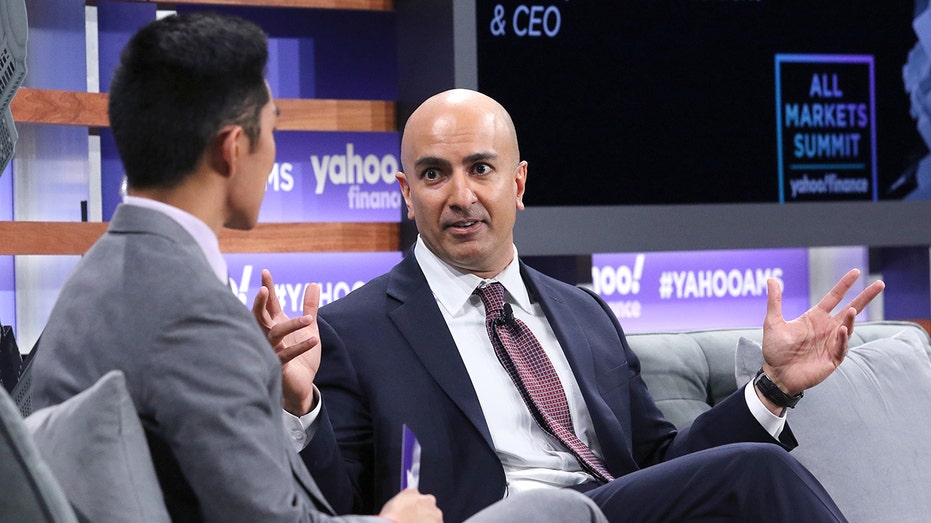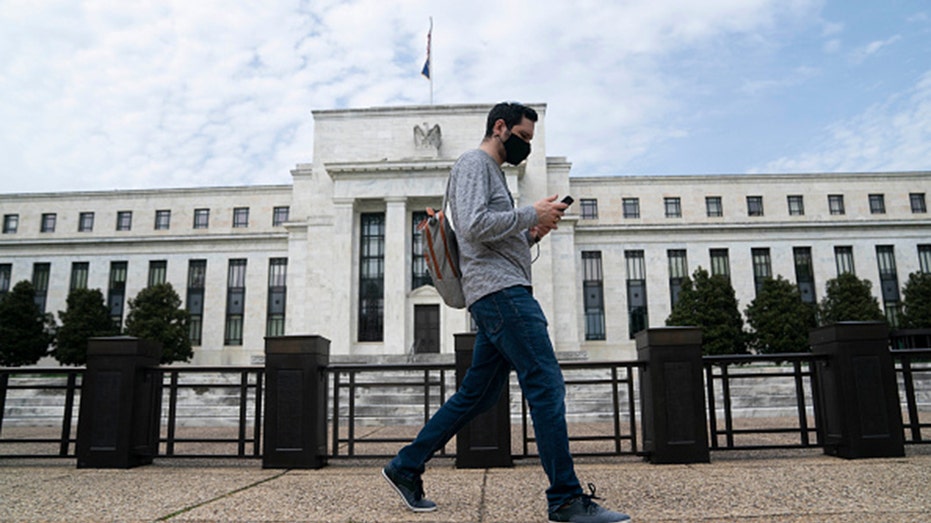Fed officials signal more interest rate hikes to come, despite growing recession risks
Fed officials suggest they are 'nowhere near' winding down rate hikes
What is the Federal Reserve getting wrong right now?
Financial experts Sheila Bair and Kenny Polcari give their take on how the Federal Reserve is responding to record-high inflation on "Making Money with Charles Payne."
The U.S. economy is teetering on the brink of a recession as it faces an onslaught of challenges. Still, Federal Reserve policymakers have signaled they will continue to hike interest rates as inflation rages — despite the threat of an impending downturn.
Stock prices rose last week following the Fed's two-day policy-setting meeting in hopes that officials are pivoting away from tightening amid signs the economy is starting to cool off.
But policymakers have poured cold water on that belief in recent days, with at least four regional Fed presidents confirming that another abnormally large interest rate increase is on the table in September — and in coming months — in the hopes of getting inflation down around the 2% target.
San Francisco Fed President Mary Daly said during an interview on LinkedIn on Tuesday that officials are "nowhere near" done raising interest rates and suggested that she is open to another 50-basis point increase — double the usual size — in September. The four consecutive rate hikes in March, May, June and July, she said, are a good start to fighting inflation but are not evidence the Fed is winding down.
IS THE UNITED STATES ENTERING A RECESSION?

Moderator Brian Cheung, left, and banker Neel Kashkari attend the Yahoo Finance All Markets Summit at Union West Events, Oct. 10, 2019, in New York City. (Jim Spellman/Getty Images / Getty Images)
Minneapolis Fed President Neel Kashkari said in an interview with The New York Times late last week that he did not understand why markets were dialing back their expectations for further rate increases.
"I’m surprised by markets’ interpretation," Kashkari said. "The committee is united in our determination to get inflation back down to 2 percent, and I think we’re going to continue to do what we need to do until we are convinced that inflation is well on its way back down to 2 percent — and we are a long way away from that."
Chicago Fed President Charles Evans, meanwhile, said he would endorse either a 50- or 75-basis point rate hike in September, and told reporters that officials are "probably at least a couple of reports away" from seeing enough evidence with the inflation data that would support the notion that central bankers are finished tightening.
Policymakers approved the second straight 75-basis point hike last week and hinted in their post-meeting statement that additional increases are likely in the coming months as they remain "strongly committed to returning inflation to its 2% objective." Chairman Jerome Powell said during his post-meeting press conference that another 75-basis point hike could be appropriate in the future but that it ultimately hinges on upcoming economic data.

A man walks past the U.S. Federal Reserve building in Washington D.C., on April 29, 2020. (Xinhua/Liu Jie via Getty Images / Getty Images)
Their comments came just a few days after the Commerce Department reported that GDP, the broadest measure of goods and services produced across the economy, shrank by 0.9% on an annualized basis in the three-month period from April through June. Economic output already fell over the year's first three months, with GDP tumbling 1.6%.
Recessions are technically defined by two consecutive quarters of negative economic growth. They are characterized by high unemployment, low or negative GDP growth, falling income and slowing retail sales, according to the National Bureau of Economic Research (NBER), which tracks downturns.
CLICK HERE TO READ MORE ON FOX BUSINESS
With back-to-back declines in growth, the economy meets the technical criteria for a recession, which requires a "significant decline in economic activity that is spread across the economy and that lasts more than a few months." Still, the NBER — the semi-official arbiter — may not confirm it immediately as it typically waits up to a year to call it.





















